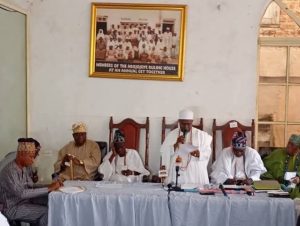By Bishop Aniede
In every society, there is always someone to push down, someone to exclude, someone to intimidate — and often, we barely notice it.
A person may be denied leadership because of their tribe, a community overlooked for its history, or even a worshipper sidelined in a religious space.
Marginalization is not just a relic of the past; it is alive, thriving, and quietly shaping who gets to lead, who succeeds, and who is left behind.
Africa has historically borne this burden. Some, particularly among white colonial powers, acted as though the continent should never have existed, erasing its history, belittling its achievements, and denying its contributions to civilization.
But exclusion is not confined to history books. Within nations, communities, and even families, invisible hierarchies dictate access to power, wealth, and prestige.
In parts of Igboland, social class determines who may or may not ascend to chieftaincy or kingship, regardless of talent or merit. Nationally, Igbo people have often faced barriers to attaining the presidency or key government appointments.
Even seemingly innocent questions — “Where are you from?”, “What is your name?”, “Who is your father?” — are often used to measure social worth before opportunity is granted.
Worse still, this epidemic of exclusion has seeped into religious spaces.
Faith, which should unite and uplift, is sometimes twisted into a hierarchy of influence, privilege, and access. Places of worship, meant to be sanctuaries of equality, are not immune from the caste-like systems that plague society at large.
The truth is stark: marginalization persists because it serves someone’s comfort, creating privilege for a few while limiting the potential of many.
Until society learns to see people beyond labels, tribe, or class, we will continue to replicate patterns of exclusion and inequality under the guise of fairness.
The time for complacency is over. Every society’s progress is measured not by the heights of its privileged few, but by the opportunities it grants to all. Let us reject invisible hierarchies, dismantle barriers, and demand a world where no one is sidelined because of tribe, class, or faith. Until we do, we are all complicit in a cycle of marginalization that diminishes not just the excluded, but the entire nation.
Reverend Simeon Aniede is Enugu based Bishop, Public cum Political Analyst.



